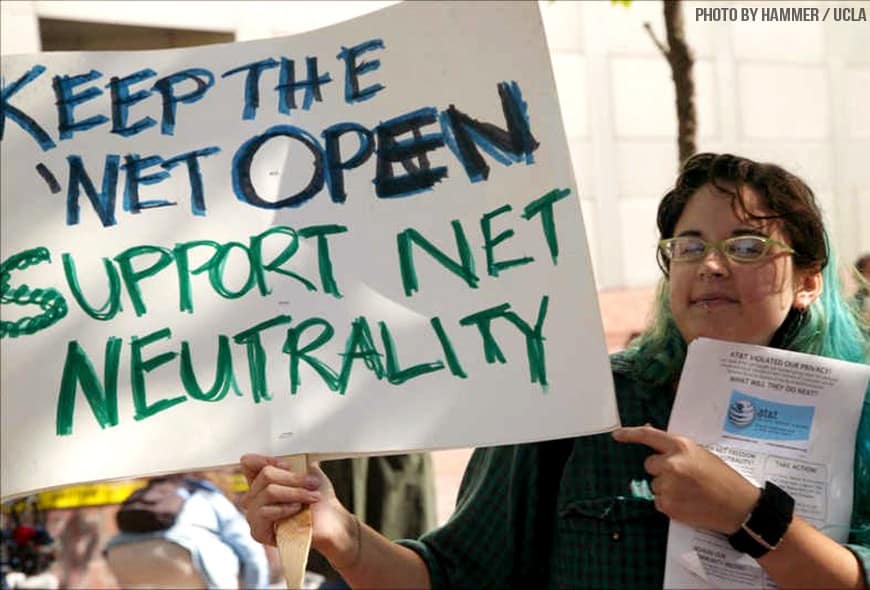The Internet – one thing everyone shares in common, and unfortunately something that could be at risk of regulation if net neutrality is violated. Open source Internet is crucial to our society because it’s a guarantee that all Internet service providers (ISPs) treat information that travels through their networks equally, no matter the idea. With technology moving at a rapid speed and the Internet providing more information and resources than ever before, net neutrality is something everyone should support.
April Glaser, staff activist with the Electronic Frontier Foundation tells MiLLENNiAL, “Violations of network neutrality are a real and serious problem: in recent years we have seen dozens of ISPs in the U.S. and around the world interfere with and discriminate against traffic on their networks in ways that threaten the innovative fabric of the Internet.”
Having open Internet regulations in our nation is crucial because it aligns with our right to free speech and creativity. There are various dangers associated with net neutrality if it is violated, such as prioritizing certain websites over others, slow Internet connection, and the quality of popular websites taking a plunge. “When ISPs can decide which sites load faster than others, it can amount to censorship, channeling users away from websites that don’t pay for faster connections. ISPs can become gatekeepers to their subscribers,” states Glaser.
Interfering with the privacy of Internet users and classifying how websites are accessed are other hurdles as well. According to the EFF, in 2007, Comcast interfered with their customers’ use of BitTorrent and other sharable files. In 2012, the Federal Communications Commission fined Verizon for charging consumers for using their phone as a mobile hotspot.
The Importance of Net Neutrality
If the Internet’s open channels are violated, it especially impacts the millennial generation because we won’t be able to create anything new, nor be as innovative as our peers from prior generations. Our nation will be at a halt with new inventions and ways of thinking. Glaser’s scenario expresses a situation in which the millennial generation will be especially effected:
Let’s say that someone comes up with an innovative website or product and that website requires a robust Internet connection to properly function. Well, in order for that site to load correctly, they’ll have to pay ISPs to reach potential users. But here’s the thing, the companies that already exist are going to set the market and those companies have deep pockets. New and innovative services won’t be able to afford a fast Internet connection. That means that the Internet of tomorrow will be predictable; it will be like the Internet of today with the same large companies in dominance. But we don’t want to be able to predict the services we’ll be using in the future. We want 1,000 flowers to bloom. We want to expect the unexpected.
Earlier this year, the U.S. Court of Appeals rejected the majority of the FCC’s Open Internet Order, which allows transparency and no blockage on the Internet. Although transparency was upheld, the court struck down the “no-blocking and no-unreasonable-discrimination rules.”
“Net neutrality will ensure a safer future for our open Internet. It’s not that we haven’t had it before. It’s rather that the FCC’s old rules were never implemented because ISPs were tied up in court, so they could neither discriminate nor could the FCC enforce the old rules,” says Glaser.
Today, the fight for net neutrality is still occurring. Protecting this principle is tough, but we can do something to not make it an ongoing battle. As a generation that takes pride in creating change, we can do our part to ensure the Internet is an open source with no blockage.
Share your thoughts with the FCC at DearFCC.org.


